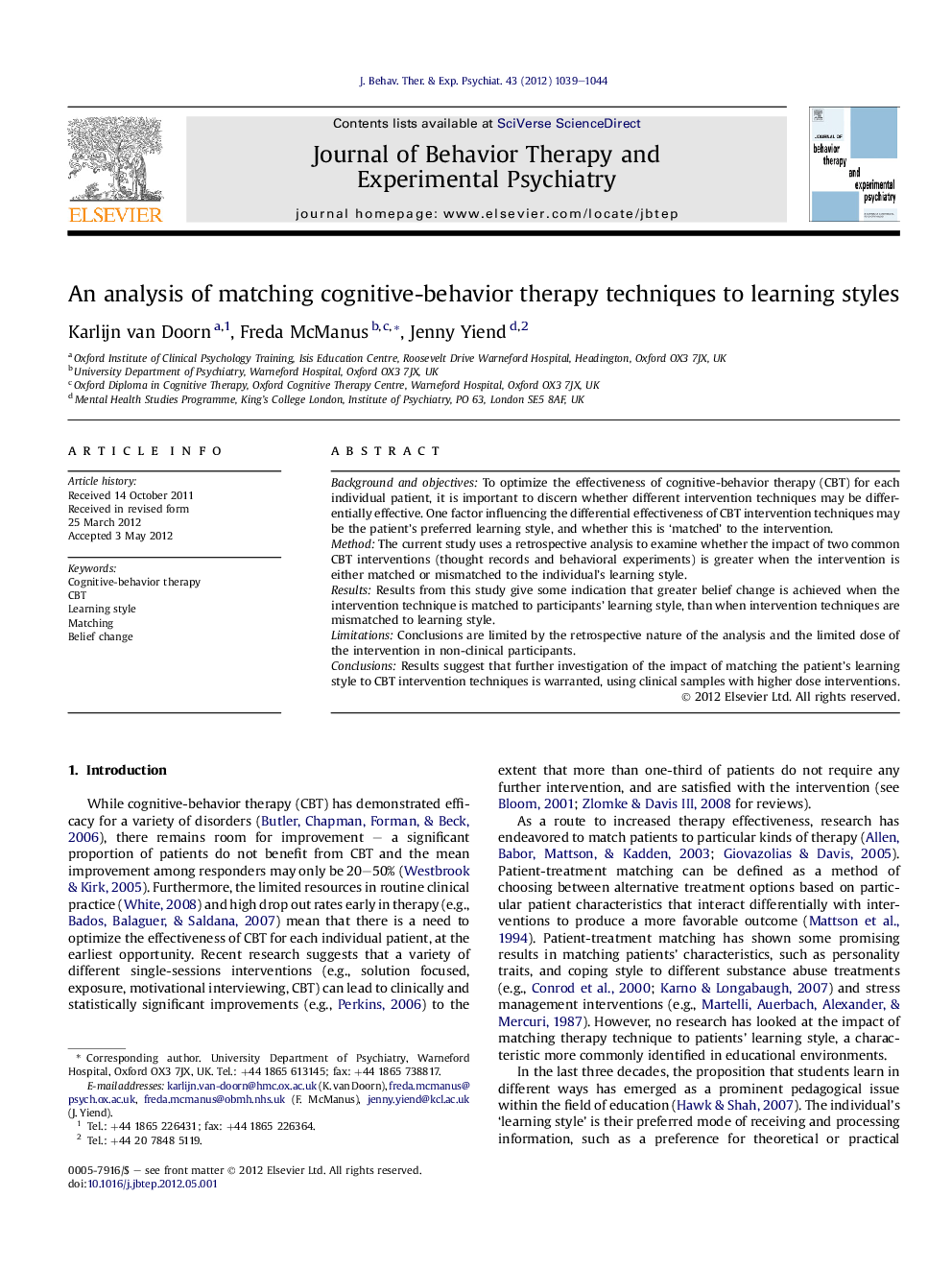| کد مقاله | کد نشریه | سال انتشار | مقاله انگلیسی | نسخه تمام متن |
|---|---|---|---|---|
| 910449 | 917463 | 2012 | 6 صفحه PDF | دانلود رایگان |

Background and objectivesTo optimize the effectiveness of cognitive-behavior therapy (CBT) for each individual patient, it is important to discern whether different intervention techniques may be differentially effective. One factor influencing the differential effectiveness of CBT intervention techniques may be the patient's preferred learning style, and whether this is ‘matched’ to the intervention.MethodThe current study uses a retrospective analysis to examine whether the impact of two common CBT interventions (thought records and behavioral experiments) is greater when the intervention is either matched or mismatched to the individual's learning style.ResultsResults from this study give some indication that greater belief change is achieved when the intervention technique is matched to participants' learning style, than when intervention techniques are mismatched to learning style.LimitationsConclusions are limited by the retrospective nature of the analysis and the limited dose of the intervention in non-clinical participants.ConclusionsResults suggest that further investigation of the impact of matching the patient's learning style to CBT intervention techniques is warranted, using clinical samples with higher dose interventions.
► The importance of matching interventions to learning styles is unclear.
► Participants' learning styles were matched or mismatched to two CBT interventions.
► Greater belief change was achieved under matched than mismatched conditions.
► Further work is warranted with clinical samples and higher dose interventions.
Journal: Journal of Behavior Therapy and Experimental Psychiatry - Volume 43, Issue 4, December 2012, Pages 1039–1044